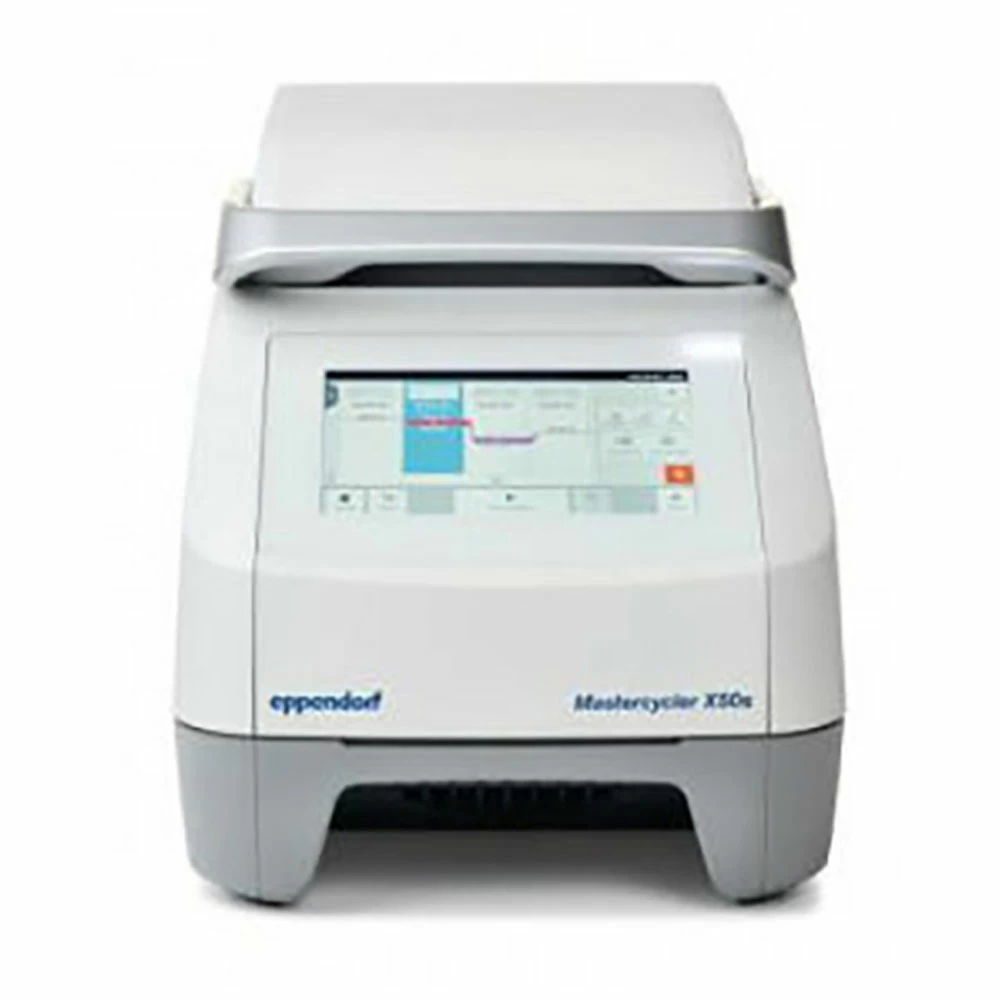Cat #: 86-1556
Eppendorf 6313000018 Mastercycler X50a, Eppendorf # 022261401, 96-well plate or 0.1/2ml



Cat #: 86-1556
Eppendorf 6313000018 Mastercycler X50a, Eppendorf # 022261401, 96-well plate or 0.1/2ml
Eppendorf # 022261401
96-well plate or 0.1/2ml
Brand: Eppendorf- Innovative 2D-Gradient for advanced PCR optimization
- Heating rate: 5 C/s
- Block temperature accuracy: ±0.15 C
- Intuitive touch display
- Connect up to 10 units to a network
- flexlid concept: automatic height adjustment of the lid allows you to use all types of consumables
- Small footprint
- 2 year warranty

$15,574.81
Login To Access Your Institutional Price
Eppendorf # 022261401
96-well plate or 0.1/2ml
Brand: Eppendorf- Innovative 2D-Gradient for advanced PCR optimization
- Heating rate: 5 C/s
- Block temperature accuracy: ±0.15 C
- Intuitive touch display
- Connect up to 10 units to a network
- flexlid concept: automatic height adjustment of the lid allows you to use all types of consumables
- Small footprint
- 2 year warranty
Speed and enhanced PCR optimization functions like the 2D-Gradient make the Mastercycler X50 the ideal PCR cycler for advanced research in molecular biology. The excellent block temperature regulation gives rise to the next stage of PCR reproducibility, whereas the adaptable user management and profound documentation capabilities give peace of mind to laboratories working to set standards. A highly intuitive touch display, low noise levels, low power consumption, and the versatile flexlid® concept complete the product to be a powerful PCR cycler. Up to 10 PCR cyclers can be combined - ideal for high throughput applications or labs with a high number of users running different assays. Should you feel you need more flexibility or throughput, up to 50 PCR cyclers can be combined in a computer-controlled network.
2D-Gradient allows you to optimize both the denaturation temperature (bottom to top) and the annealing temperature (left to right) during the same run. Higher denaturation temperatures can have the advantage of increased specificity while lower denaturation temperatures reduce stress on biomolecules and can lead to increased yield. Assays that struggle to work reliably at a 95° denaturation temperature could benefit significantly from the optimization of the denaturation temperature.
Enjoy our products? Leave a review and let us know.

